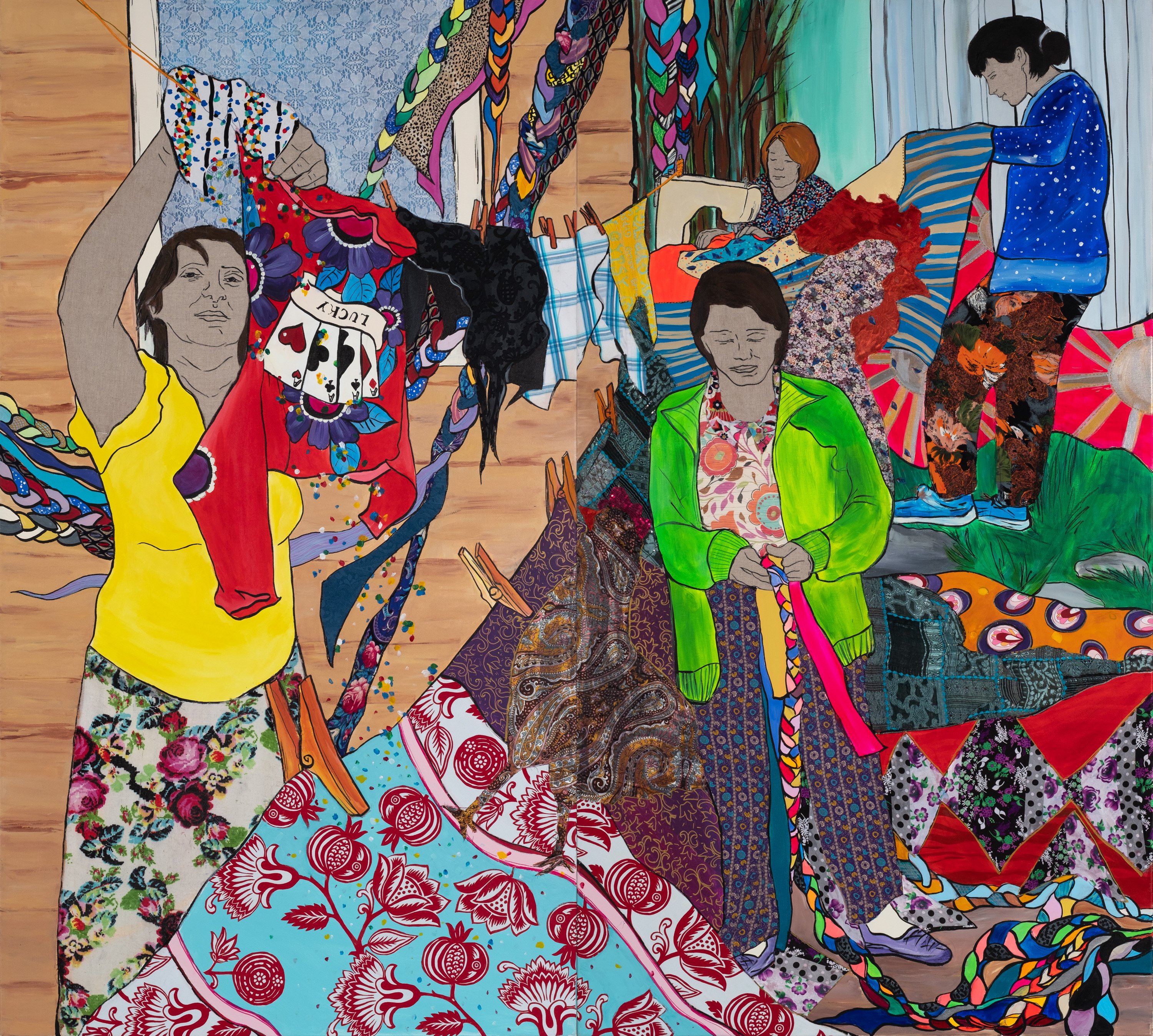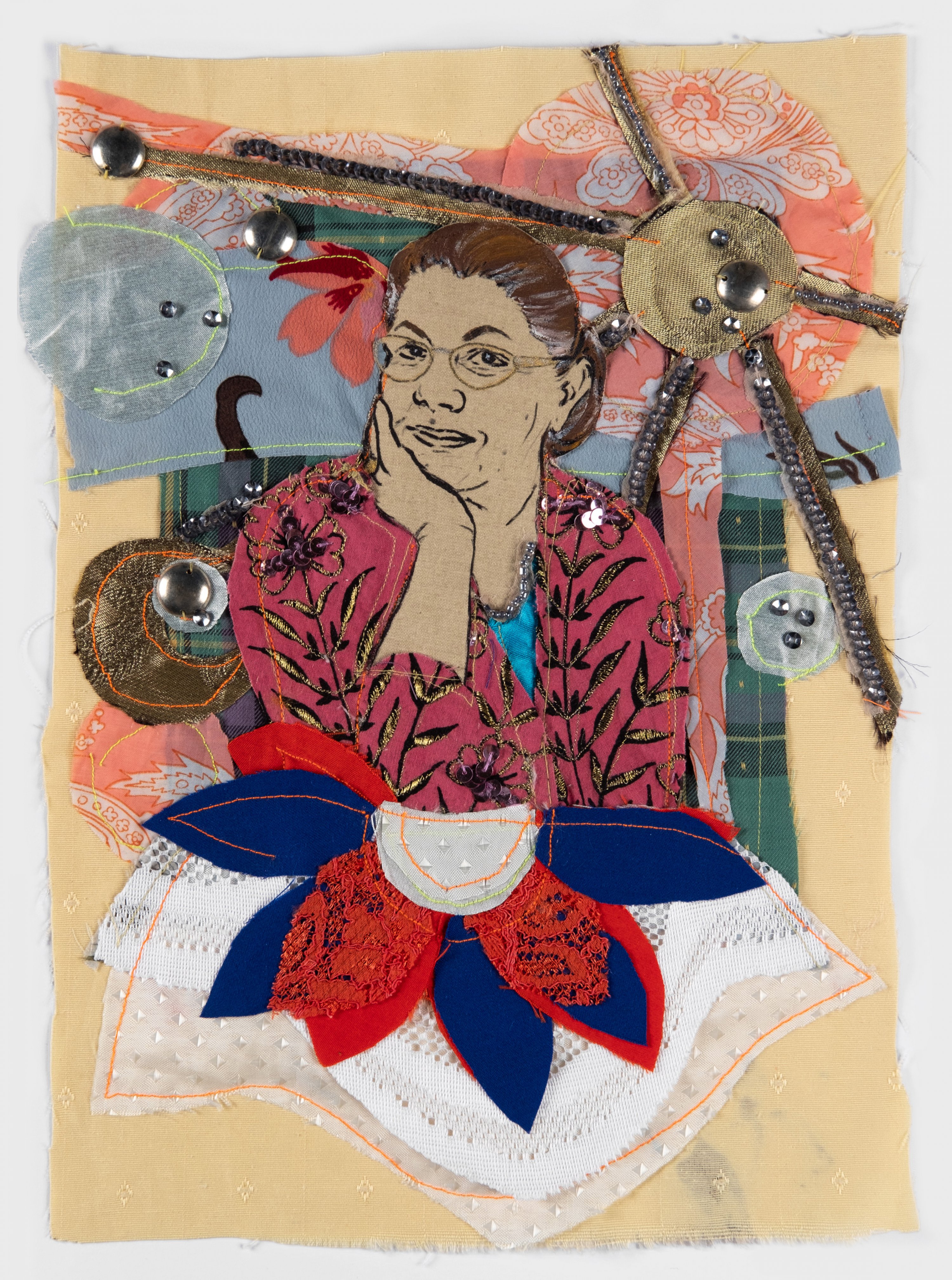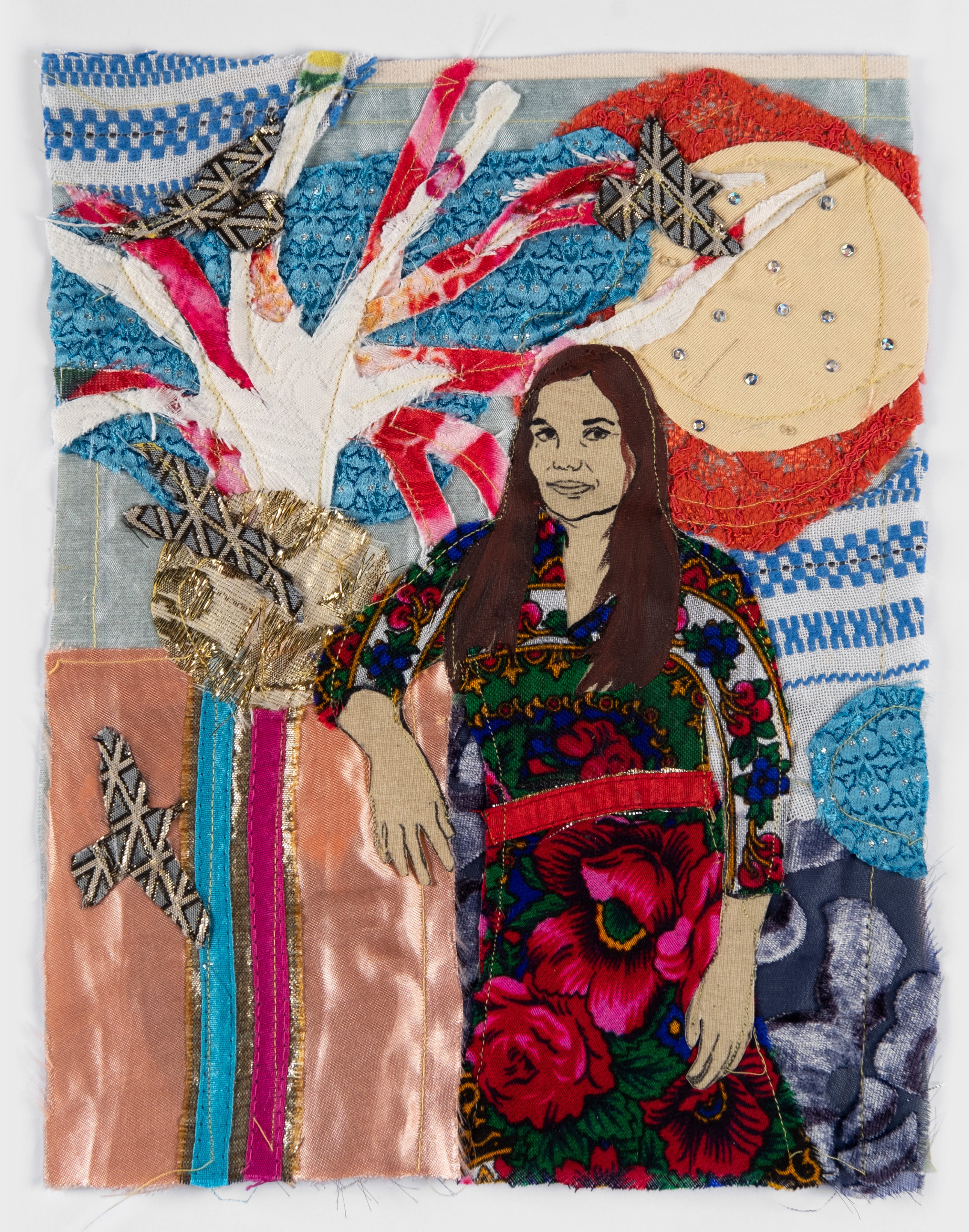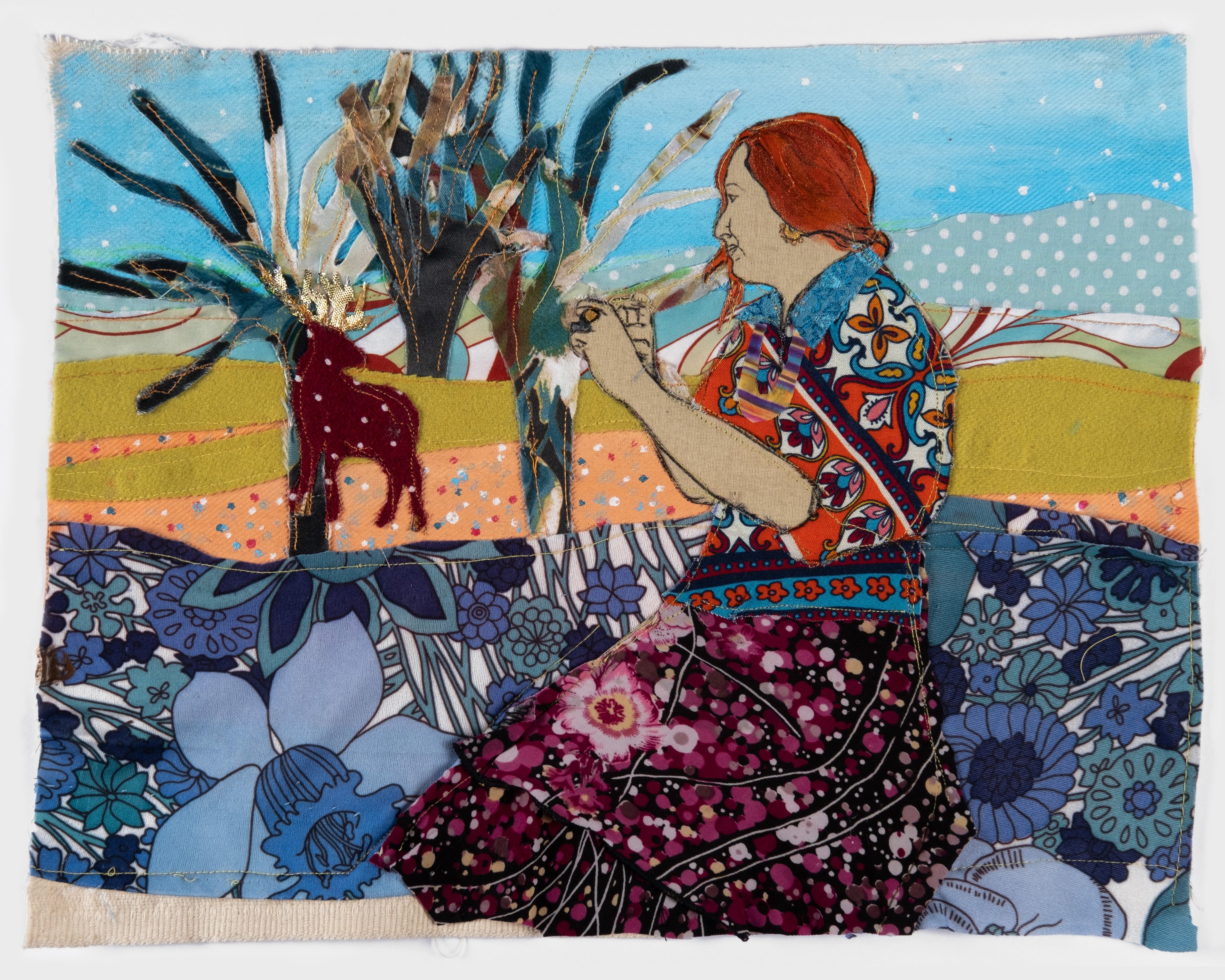Małgorzata Mirga-Tas
b. 1978, Zakopane
Visual artist. Graduate of the Faculty of Sculpture at the Academy of Fine Arts in Kraków. She creates sculptures and patchworks from textiles and clothing, often coming from family and friends and reflecting their favourite apparel. The distinct technique of her work is characterized by eclectic, carefully selected materials and an unusual play of patterns and colours. In her work she presents individuals and historical events important for the Romani society, as well as scenes from the everyday life of her family and neighbours.
She is the organizer and curator of the Romani Art project and the annual International Event of Roma Art in Czarna Góra “Jaw Dikh!” (Come, see!) She is involved in combating exclusion and discrimination against the Romani as well as dispelling stereotypes through artistic actions. She took part in the 3rd Art Encounters Biennial in Timișoara, Romania (2019) and the 11th Berlin Biennale for Contemporary Art (2020). She lives and works in the village of Czarna Góra.
Sisters (Phenia)
FSP ING 0202
The painting Sisters (Phenia) depicts four women linked by a colourful chain of fabrics. One of them hangs out the laundry, another weaves braids from scraps of cloth, the third unfurls a sheet of material, and the fourth works on a sewing machine. The work was created on the basis of several photos made during the preparations for the exhibition Pany Chłopy Chłopy Pany (Lords peasants peasants lords) in 2016 at the Sądecki Ethnographic Park in Nowy Sącz. Nearly all the women from the artist’s family assembled then to help her prepare a site-specific work. With their combined forces, they created patchworks which they used to cover several Roma homes lying to the side of the ethnographic park (and to the side of the museum’s narrative). The work was a gesture of care as well as drawing attention to structures that are a major part of the Romani heritage.
The situation depicted in the painting Sisters is a typical example of the collective process of work on Mirga-Tas’s projects. The women treat their shared sewing as an occasion for togetherness and an escape from everyday routine, but also as a social mission toward empowerment of the image of the Roma—a major aspect of the work of Małgorzata Mirga-Tas. Her works can serve as examples of femmage, a term coined by American women artists for techniques, such as collage, assemblage and photomontage, practised by women in traditional societies as well as in contemporary art, blurring the boundaries between them.
Adela Głowacka
FSP ING 0203
This work arose as part of the project @52proposalsforthe20s, launched by the curator Maria Lind. Lind asked 52 artists how they envisioned the approaching decade of the 2020s. Małgorzata Mirga-Tas created dozens of portraits of inspiring Romani women she knows personally or whose work she admires: strong women conscious of their rights and values. Adela Głowacka, presented in this tapestry, lives in Radom. She is a social activist and a member of the association Romano Waśt (Helping Hand), which is involved in the protection of Romani identity and social integration of different cultures. She is also the caretaker of a Jewish cemetery in Radom.
Although traditionally in the Romani community men hold the highest position in the hierarchy, currently throughout Europe it is women who are becoming leaders in Romani communities. According to Mirga-Tas, in the new decade this trend will grow even stronger. Romani women are increasingly becoming educated, speaking out on important issues, and working as activists to create a better future for themselves and their community.
Tímea Junghaus
FSP ING 0204
Tímea Junghaus is one of the visionary women fighting for recognition of Romani art and culture. She was the initiator and curator of the first Romani pavilion at the Venice Biennale in 2007, and is currently director of the European Roma Institute for Arts and Culture in Berlin. This is one of dozens of portraits of contemporary women leaders of the Roma community prepared by Mirga-Tas as part of the project @52proposalsforthe20s, initiated by curator Maria Lind—a collection of artists’ visions of the upcoming decade of the 2020s. Mirga-Tas recognizes the increasing initiative of female Romani activists, whose work is changing engrained patterns in the perception of women’s roles in Romani society. Mirga-Tas’s broader aim is to combat stereotypes and exclusion, and to seek equal rights for the Roma through art.
Delaine Le Bas
FSP ING 0205
In a series of colourful patchworks, Małgorzata Mirga-Tas portrays contemporary Roma women who have decided to change the world. One of them is Delaine Le Bas, a British Roma artist and creator of the mobile Romani Embassy. Mirga-Tas describes her thus: “An incredible woman, strong, valiant and creative. An exceptional Roma artist. A loving sister and friend. Only with Delaine can we visit the Romani Embassy, which has an eye on the world.” The portrait of Delaine Le Bas is one of dozens of patchworks created as part of the project launched by curator Maria Lind @52proposalsforthe20s, devoted to artistic forecasts for the 2020s. Mirga-Tas imagines the immediate future as a time of leadership by strong, wise women—Roma activists, artists and political operatives. These women play a greater and greater role not only for the Roma community, but for the entire society.



